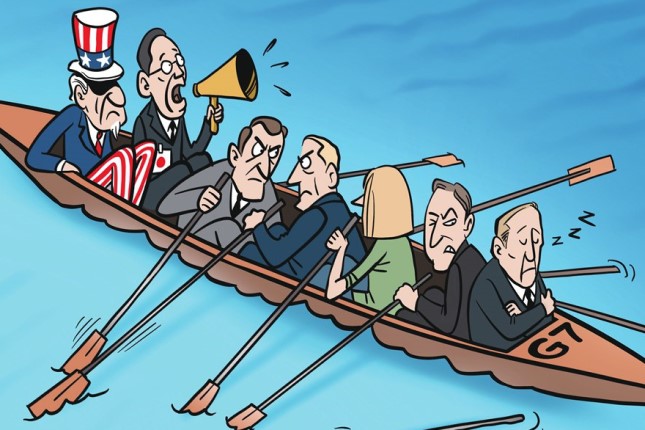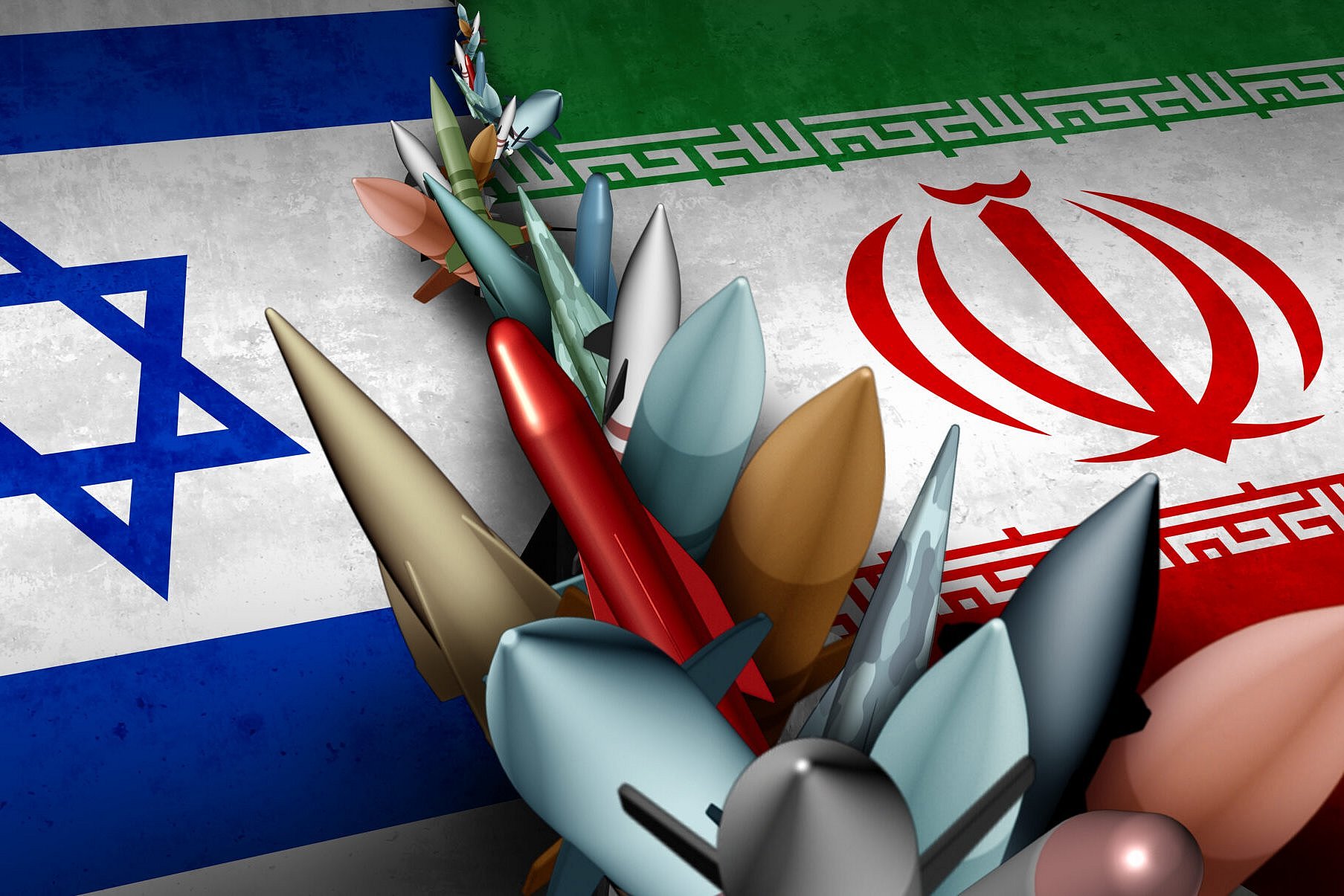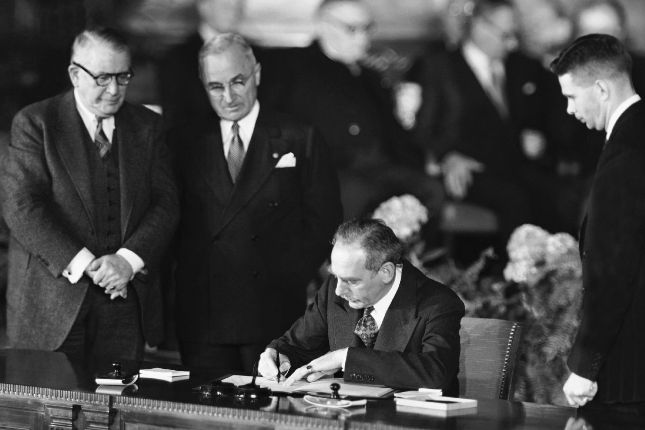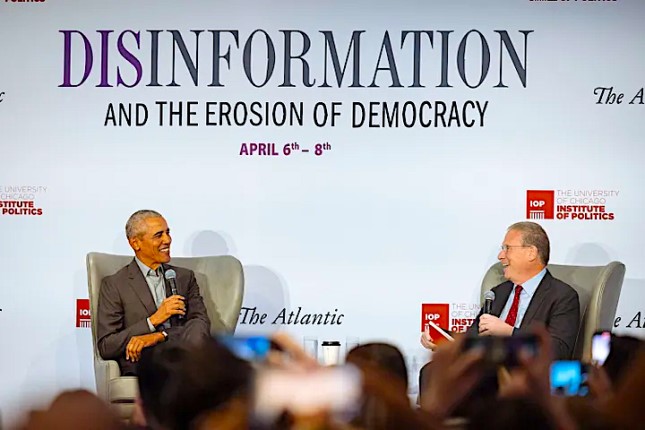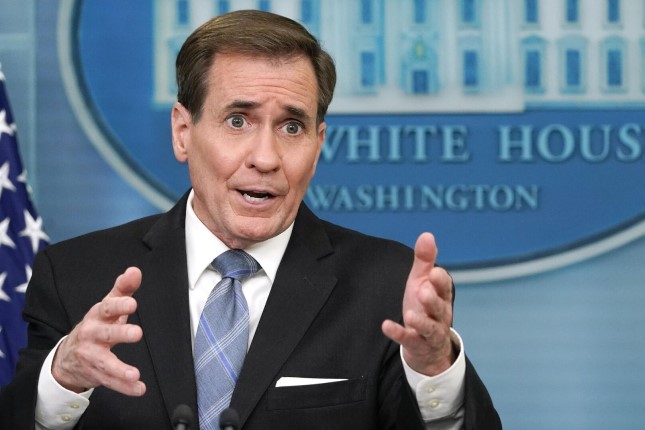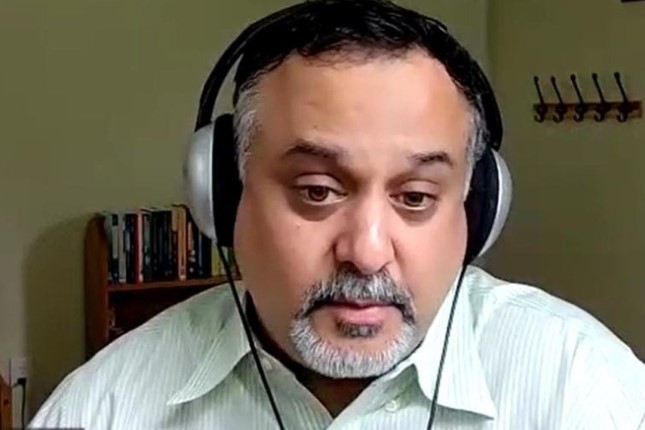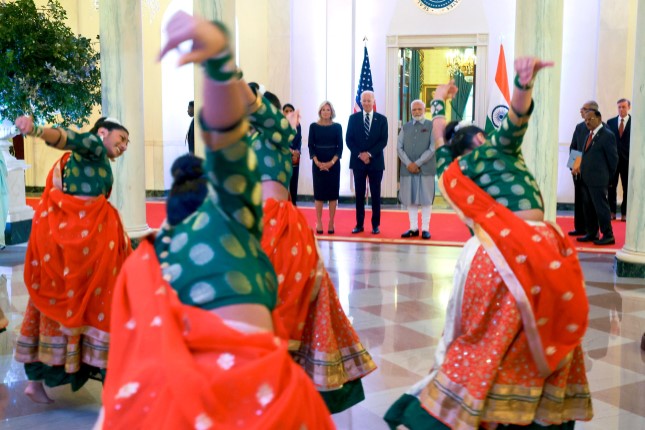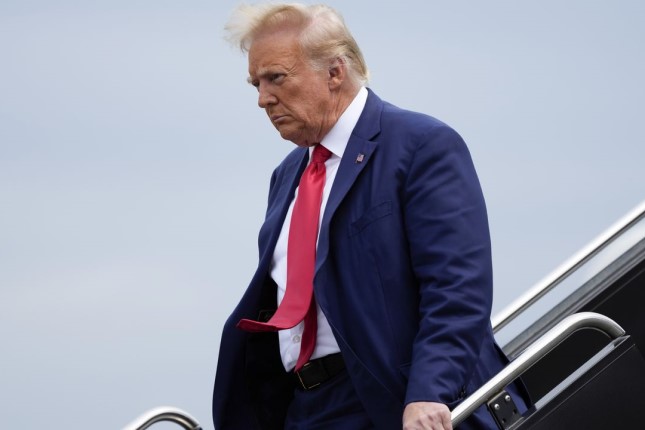Some Japanese media said that it was due to the fear that Ukrainian President Volodymyr Zelensky's visit to Hiroshima on the same day would steal the attention from the communiqué. However, even so, this G7 communiqué of dozens of pages still seems to draw little interest from the outside world, except for the part that targets China. According to the Financial Times, the G7 has issued its strongest condemnation of China, and most of the other international mainstream media also highlight that it "amps up pressure on China." It seems that the only way for the G7 to catch people's attention and show its sense of presence is to speculate on the issues related to China.
As a "rich countries' club" that once accounted for up to 70% of the global economy, the G7 has been facing a serious existential crisis in recent years as its economic weight has been declining, coupled with a decline in global population share and perceived attractiveness. In previous years, the G7 summits were always out of the loop because of internal differences and disagreements among the member countries. But since 2021, the G7 communiqué began to target China, which gradually became its "traffic code." Its full name is "the Group of Seven industrial powers," but now it operates like a small workshop specializing in the mass production of "shoddy products." Those anti-China products, without factual basis, legal ground or moral principles, are mostly from the G7 countries.
Unlike the past "focus" on specific issues with China, this G7 communiqué simply includes "China" as a whole, which is consistent with the recent move of NATO, highlighting that the US is pushing hard to weave an anti-China net in the Western world. The communiqué mentions China 20 times by name alone, the most in recent years. It almost hyped all the topics it could find, such as Taiwan, the East China Sea, the South China Sea, Hong Kong, Xinjiang, Xizang, and China's nuclear power, in addition to insinuating China's "economic coercion." This is not just a matter of brutal interference in China's internal affairs and smearing China, but also an undisguised urge for confrontation between the camps, which has made the G7 one of the biggest risks faced by peace and development in the world today.
Many have noticed that the G7 communiqué used some "conciliatory statements," such as claiming that their policy direction is "not to harm China" and is "not to decouple," expressing the hope to "establish constructive and stable relations with China," and mentioning that the one-China principle has not changed. These statements are largely considered to be a corresponding "compromise" that Washington had to make due to the "differences in how the US and Europe deal with China issues." Although it is essentially still provoking geopolitical confrontation, it also precisely illustrates that Washington's dirty strategic intentions cannot even be put on the table within the Western world, and can only be shown when they are covered with layers of moral disguise. If this is the case among the closest allies, it goes without saying in the international community.
The louder the anti-China rhetoric from the G7, the smaller its actual impact will be, as this is a natural law. This is because it would mean that G7 serves the strategic interests of the US rather than the welfare of the international community, making it difficult to receive any "assistance" but more difficult to make progress. It is very likely that in the end, the G7 will find that it has expended a lot of effort, but the result is only spinning its wheels. If the G7 wants to truly "regain its former glory," it is not difficult. It just needs to truly live up to its promise of "not harming China," adhere to the one-China principle, not engage in decoupling or disguised decoupling, and establish a "constructive and stable relationship" with China in both words and deeds. For the Western world, choosing to cooperate with China rather than confront it and taking a path of common prosperity is the true path of "derisking."
In sharp contrast to the vigorous development of emerging economies, old industrialized Western countries are mired in various troubles. Some US media have pointed this out, believing that this year's G7 summit in Hiroshima is to some extent a "lonely hearts club" because the internal governance of these countries is mostly difficult to gain voter approval, and there is a wave of dissatisfaction sweeping Western societies. The Hiroshima summit seems to have given the G7 a sense of "shaping history," but this illusion will soon be blown away by the winds of reality, since without internal prosperity and development, external displays of strength are only superficial. We advise G7 leaders to spend more time on their internal affairs and less time pointing fingers at others, which may be able to save the G7's severely declining reputation.
Source: The Global Times.
